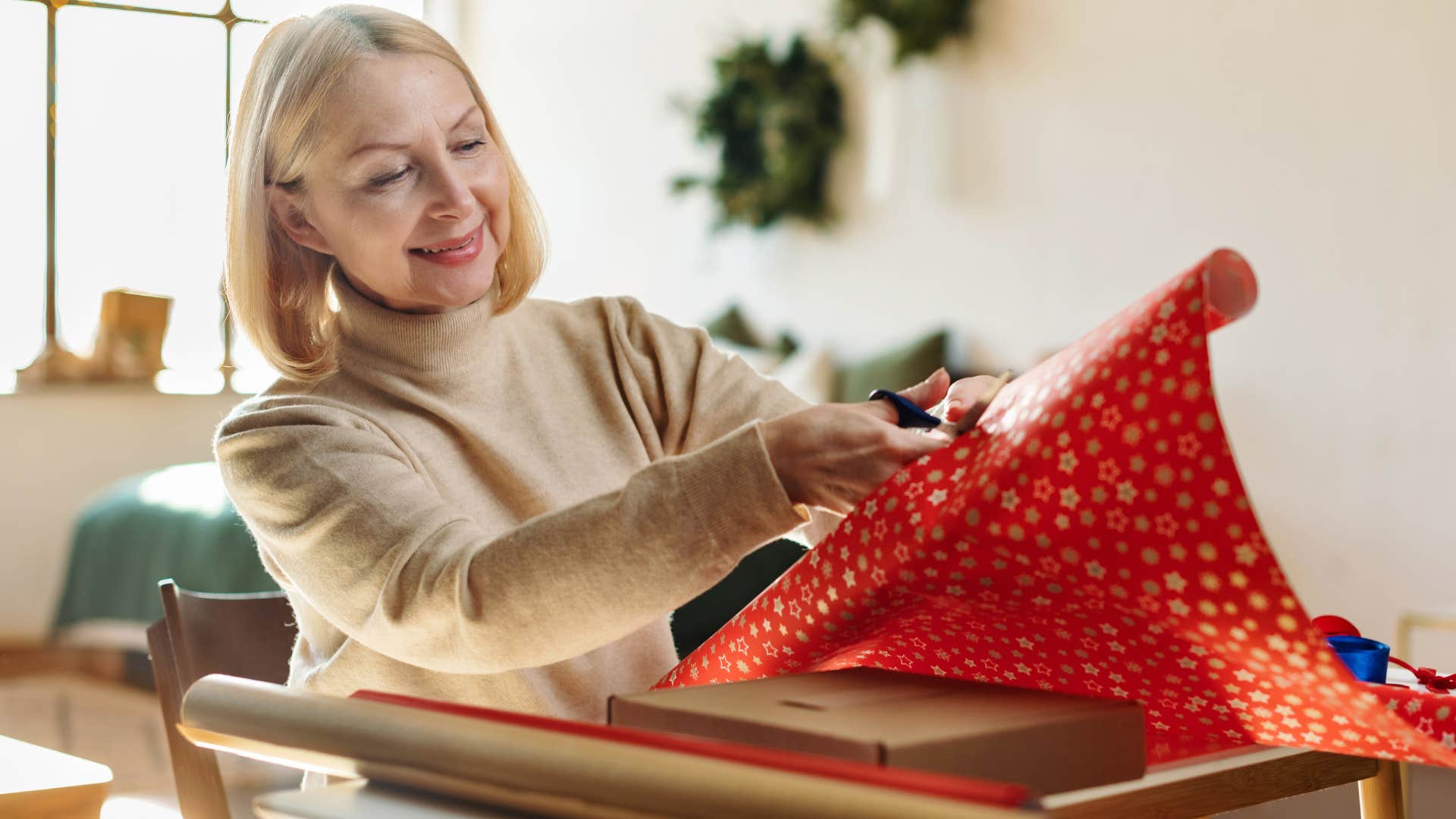11 Little Things Frugal People Always Have In Their Homes That Most People Overlook
These small items can have a huge impact.
 stockfour | Shutterstock
stockfour | Shutterstock What most people get wrong about saving money in their daily lives is adopting the wrong mindset. Whether it's a scarcity or sacrifice mindset that guilts people into cutting back, like financial coach Tiffany Woodfield suggests, or being too flippant about spending, you'll never meet your financial goals or achieve financial stability if you have the wrong attitude and mindset.
That's why many of the little things frugal people always have in their home that most people overlook help to coach them into a better state of mind, rather than mindlessly save them money. They're not only more intentional with their daily habits, they're invested in building a better lifestyle, state of mind, and attitude about their financial state that sets them apart from others.
Here are 11 little things frugal people always have in their homes that most people overlook
1. Comfort movies and books
 Miljan Zivkovic | Shutterstock
Miljan Zivkovic | Shutterstock
Even if it seems unsuspecting, many people overspend and lean into impulsive financial decisions when they're feeling emotionally unsettled. Like psychotherapist Joyce Marter suggests, these kinds of people allow their emotions and internal mental state to guide their spending, even when it goes against their budget or financial goals.
However, frugal people are intentional about crafting a healthy mindset, starting with curbing impulsivity and emotional spending. They not only craft healthy coping mechanisms to acknowledge emotions — like sadness, anxiety, or fear — that might urge them to spend for comfort, they keep tangible household items like comfort movies and books within reach.
2. A sewing kit
 PeopleImages.com - Yuri A | Shutterstock
PeopleImages.com - Yuri A | Shutterstock
Many frugal people opt for secondhand shops and thrift stores to buy clothing when they need it, avoiding fast fashion and consumerist pressures that urge people to overspend on brand new clothes for every occasion and outing. However, they also tend to be "upcyclers" — fixing their clothing with basic sewing knowledge and recycling habits that save them money in the long run.
According to a ValuePenguin study by LendingTree, the average person spends nearly $1,500 on clothing every year, but frugal people are intentional about repurposing their clothes and recycling things to avoid buying brand new items.
3. Recycling bins
 SeventyFour | Shutterstock
SeventyFour | Shutterstock
Even simply saving aluminum cans and bottles over the course of the year can be an effortless way to bring in extra income, with the average person making between $500 and $700 annually. Of course, it usually takes knowledge and a financial investment to recycle other goods, but from a sustainability mindset, frugal people tend to be more environmentally conscious of their consumption, according to a study from Frontiers in Psychology.
They're intentional with the kinds of purchases they make and the goods they consume, so recycling is a habit that often falls in line with their frugal mindset, even if that means having recycling bins in their home.
4. Vinegar
 Hananeko_Studio | Shutterstock
Hananeko_Studio | Shutterstock
Instead of buying a million different cleaning products, which also tend to be more unhealthy than natural alternatives, frugal people keep vinegar on hand in their households. Whether they're using it to clean their bathrooms or using it in laundry, it's one of the little things frugal people always have in their homes that most people overlook.
Of course, it doesn't always substitute all cleaners and household products, but it can help to save them money in the long run. According to a Statista survey, the average American spends nearly $700 yearly on cleaning supplies, but frugal people swap out several of those costs for a cheaper jug of vinegar, saving them more money than people realize in the long run.
5. Reusable cloths and rags
 Prostock-studio | Shutterstock
Prostock-studio | Shutterstock
By choosing not to keep paper products — from paper towels, to paper plates, and napkins — in their homes and instead purchasing and reusing washable cloths and rags, people save more than $115 annually per person in their household. It may seem like a simple switch, but American households are literally flushing more money down the drain by using paper products in their daily lives.
Even in their bathrooms and kitchens, frugal people don't mind having mismatched rags and bath towels that they've collected over the years. They'd prefer to save money on home decor by opting out of the consumerist mindset that everything has to match, and instead invest in quality items that last and save them money.
6. LED light bulbs
 Halfpoint | Shutterstock
Halfpoint | Shutterstock
According to a study from the U.S. Department of Energy, the average American saves over $225 in annual energy costs by switching the LED bulbs in their homes. Even if they cost a little bit more initially, they tend to be far more energy-efficient in the long run.
Outside of switching bulbs, one of the most common frugal habits people commit to is lowering their electricity bill by limiting usage. Whether that means unplugging items, keeping the lights off for as long as possible, or even choosing to run laundry and dishwashers just once a day, they're intentional about not just the materials they consume, but also the energy.
7. Regiftable items and decorations
 Oksana Klymenko | Shutterstock
Oksana Klymenko | Shutterstock
On birthdays and holidays, frugal people always have a stash of regiftable items and decorations to pull from — whether it's leftover tissue paper, old reusable bags, or a generic gift for someone in their life. Of course, being frugal doesn't have to mean you're a bad gift-giver — as long as they follow the basic etiquette rules of redistributing their presents.
The holiday and gift industry is booming, filled with pressures to overspend and advertisements to buy things outside of your budget, but frugal people are intentional about keeping little things in their home that distract them from those urges.
8. A clothesline
 Krakenimages.com | Shutterstock
Krakenimages.com | Shutterstock
Even if it's one of the little things in a frugal person's home that their guests overlook, having a clothesline to dry clothes can actually be an effective way to save money. Considering clothing dryers tend to be one of the biggest energy sources in your home, avoiding using them and instead air drying clothes outside can save you on your monthly electricity bill.
Outside of simply being more cost-effective, using a clothesline can also help to protect the quality and longevity of your clothes, ensuring you're not constantly needing to fix or replace things down the road.
9. Library cards
 ViDI Studio | Shutterstock
ViDI Studio | Shutterstock
Many generations are starting to utilize the library much more — not just to save money on reading books, but also to build a sense of community in a society that's losing "third places" at a drastic rate. Outside of simply saving on the costs of new books, there are also a number of resources available at local libraries — from community events, to free financial literacy courses, and even access to technology and internet.
Investing in a library card isn't just about finding a healthy hobby and coping mechanism for frugal people, it's also about connecting with others, saving money, and leveraging resources that are commonly overlooked by the average person.
10. A fridge list
 Ground Picture | Shutterstock
Ground Picture | Shutterstock
Whether it's a paper pinned to the fridge or a white board, frugal people always have an idea of what's left of their groceries, because they plan it out and write it down. It's one of the unsuspecting little things frugal people always have in their homes that most people overlook, because they are adamant about reducing food waste and making the most of their money in food.
Considering 70% of Americans struggle with grocery costs and affording other basic necessities, it's the perfect way to stick to a budget, reduce food waste, and save money on purchasing food that you'll never end up eating.
11. An herb garden
 StratfordProductions | Shutterstock
StratfordProductions | Shutterstock
Even if they don't have the space to grow all of their own food or nurture an entire garden, a little herb garden or a few plants are some of the little things frugal people always have in their homes that most people overlook. Not just for their own households, but to share small favors amongst neighbors and communities.
Especially for younger generations that want to prioritize nutrition and organic rules in their diets, it makes sense to invest in their own plants, with grocery prices for small inexpensive things like herbs rising exponentially.
Zayda Slabbekoorn is a staff writer with a bachelor’s degree in social relations & policy and gender studies who focuses on psychology, relationships, self-help, and human interest stories.

